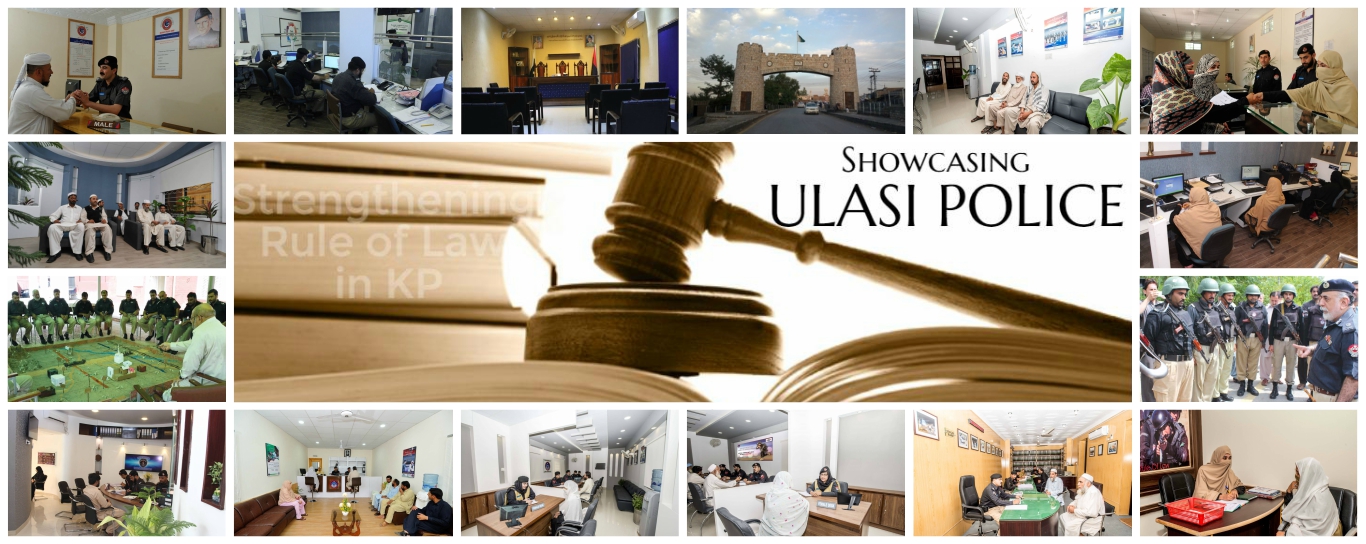The Center for Research and Security Studies (CRSS) aired three new episodes of its new flagship radio program “Ulasi Police” in the districts of Mardan, Peshawar, and Charsadda on June 07, 08 and 09 respectively.
“Ulasi Police” is an awareness and advocacy campaign undertaken by the Center – as part of USAID Small Grants and Ambassadors’ Fund Program – to strengthen the rule of law in KP province by promoting and disseminating the significant police reforms aimed at incorporating local communities’ policing needs and international human rights standards. The endeavor aims to ameliorate the trust deficit between the public and police, and help KP police become an accountable and community-focused police force.
Police Assistance Lines (PAL) and Police Access Service (PAS):
Ulasi Police aired from Pakhtunkhwa Radio, FM-92.6, Mardan on June 07, 2016 discussed the functions and purposes of Police Assistance Lines (PAL) and Police Access Service (PAS) in district Mardan. It also discussed how efficient and effective PAL in Mardan was, its progress since its inceptions and different types of one-window corporate style solutions to the public for the resolution of their day-to-day affairs through the provision of services including:
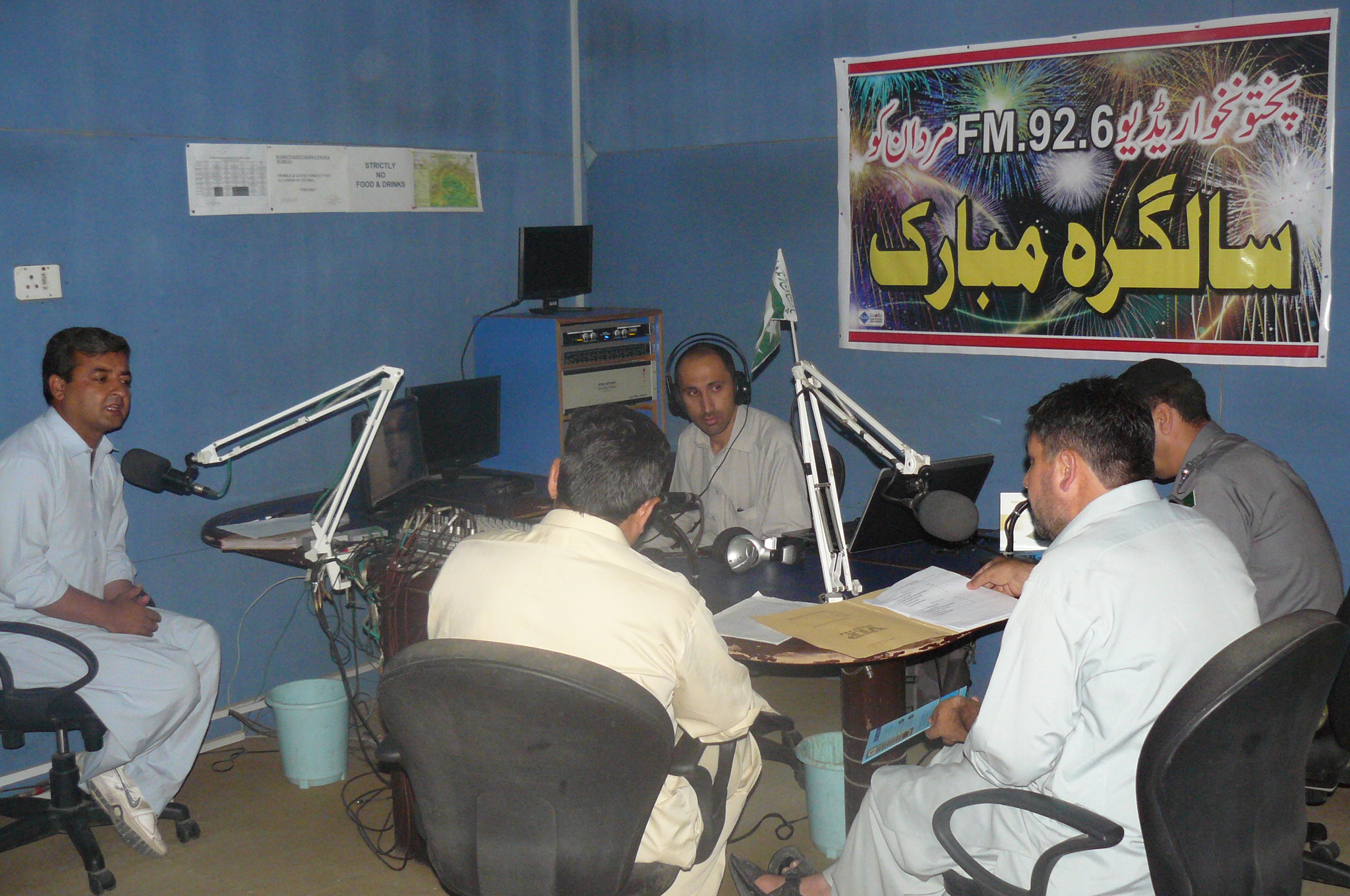
- Theft reporting
- Lost Items reporting
- Extortion reporting
- Child lost and found
- Tennant Information Form and rental agreement reporting
- Police Security Clearance Certificate
- Police Character Certificate
- CNIC verification
- Vehicle verification
- Legal advice
- Women counter
- Traffic license and excise document attestation
The mechanism of Police Access Service (PAS) was also discussed which not only provides prompt and swift police response to the public complaints but also enhances police accessibility. The police department has established a well-equipped Police Access Service Center in Central Police Office where citizens from across the Province access the police through a SMS and the concerned police officers contact the complainants within 24 hours.
Mr. Riaz Hussain, senior journalist, Mardan, said: “If we look at the Police attitude, it has changed now, especially the traffic Police. They are ever more welcoming and greet the public with a smiling face. I think it’s the outcome of different schools within the police department imparting training to police personnel on dealing with general Public. I hope things will be improved more given such initiatives continue.”
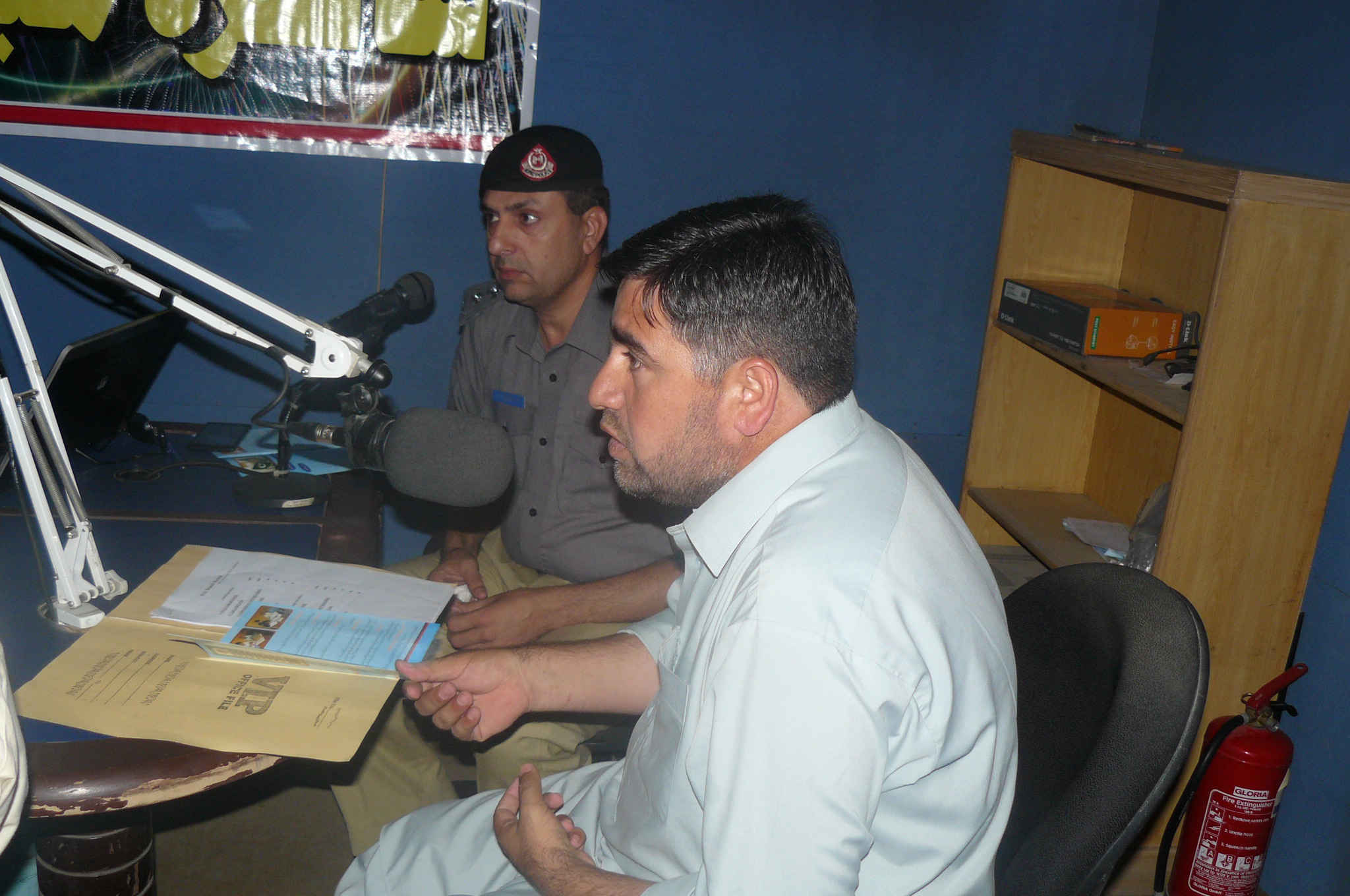
The other guest participants of this radio show were Mr. Luqman Khan, SHO, Toru Police Station, Mardan, and Mr. Sadbar Khan, Head Constable/In-charge, PAL, Mardan.
Impact of Depoliticizing Police in KP:
Ulasi Police aired on June 08, 2016 from Pakhtunkhwa Radio, FM-92.2, Peshawar, focused on the positive impact of the elimination of political interference in and influence over the police department and the importance of its operational autonomy. The key discussion points of the program were benefits of depoliticizing police in KP, empowerment of police force, changes in the work pattern of police officials after de-politicization, improved service delivery of justice system and reduction of burden on police department.
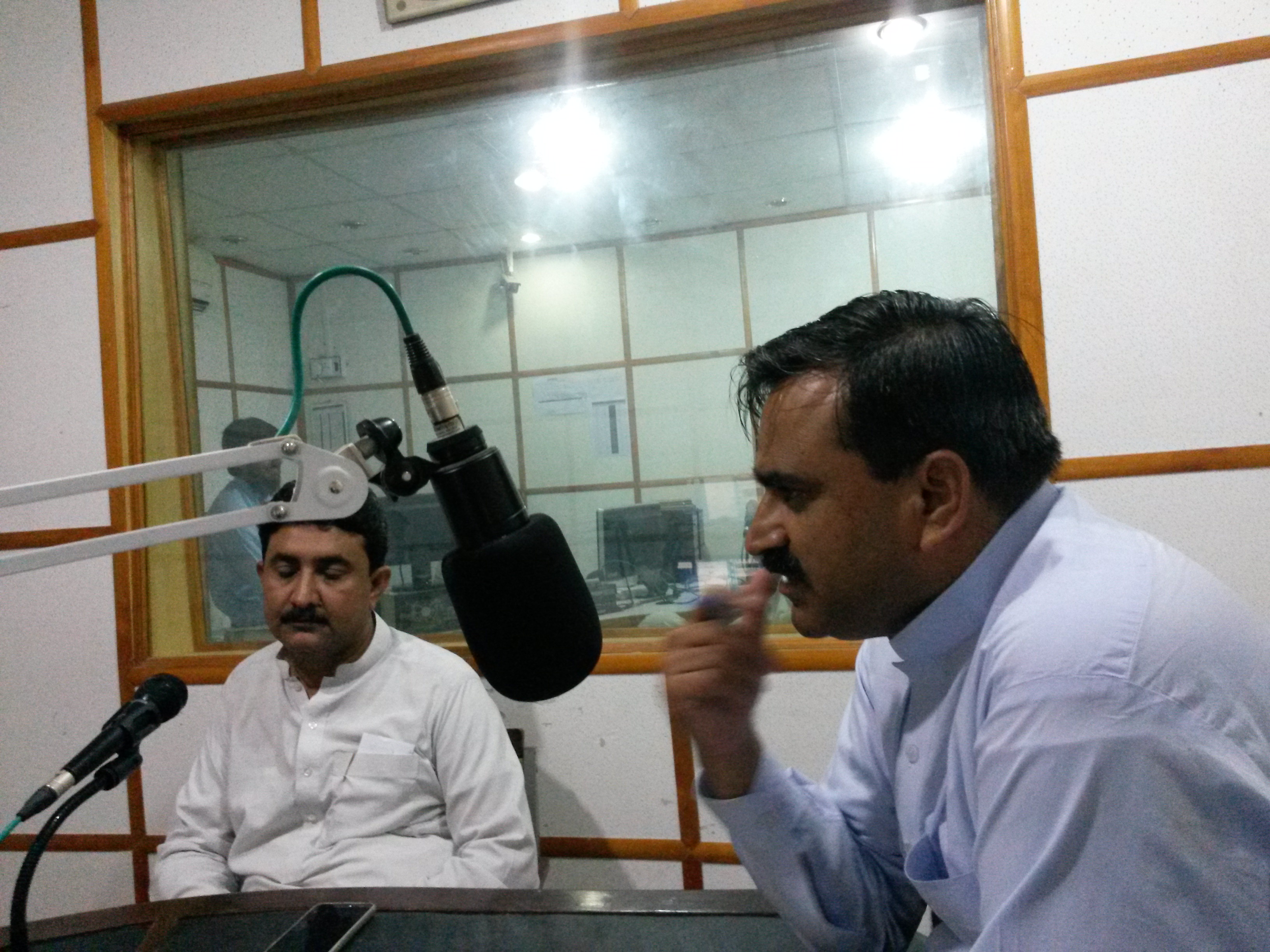
Mr. Hassan Afzal, Assistant Superintendent Police, Peshawar, said: “It’s been four months since my assignments at my present duty station and I have so far not seen any sort of political interference in our department whatsoever. It has made our work quite impartial. If we consider Police Order 2002 and the related amendments, then it can be realized that it is practically implemented in KPK only. We have seen various forms of police services oriented for public welfare like DRCs, PAL and other services which convey the impression of community Police force.”
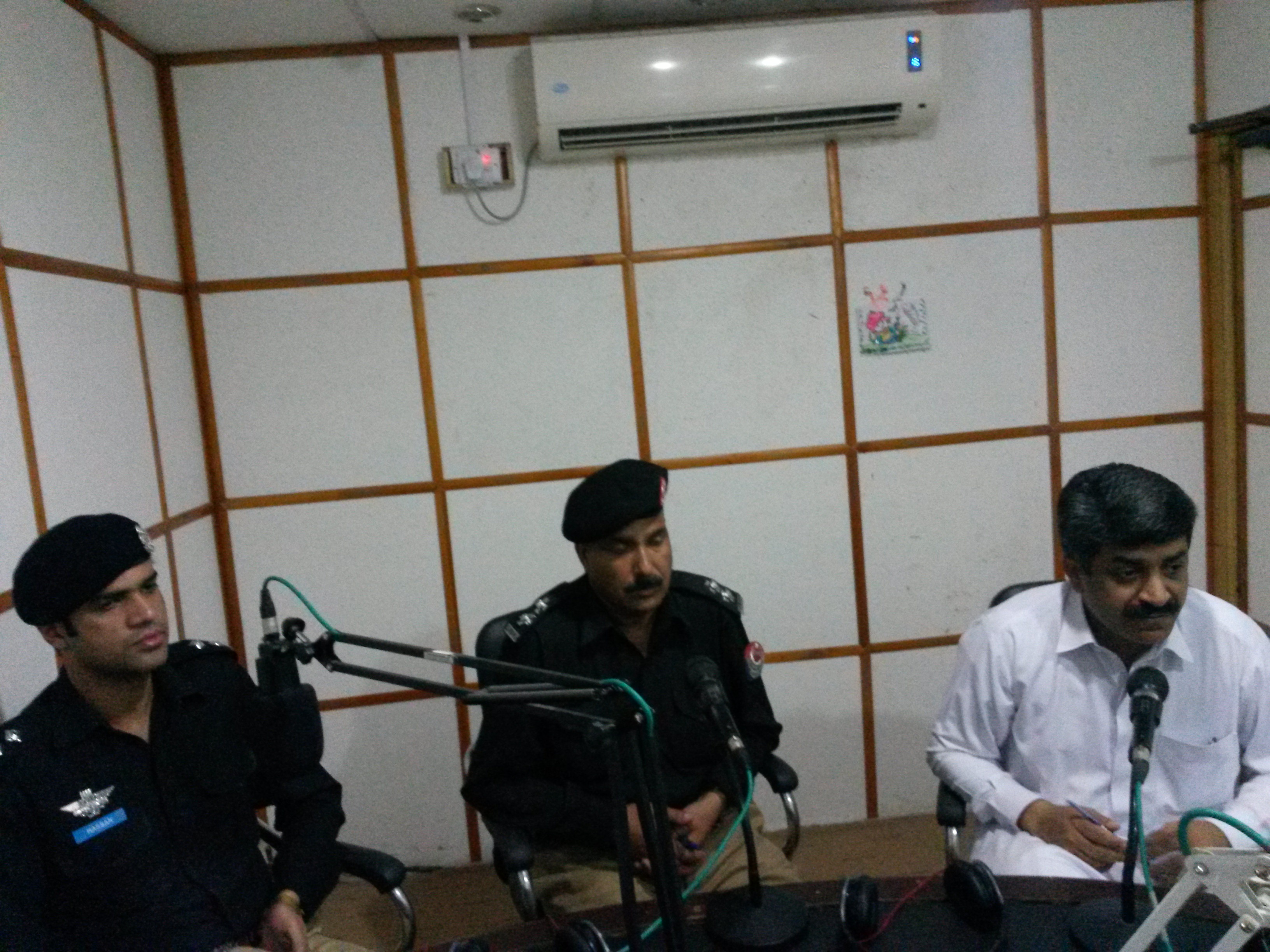
The other guest participants of this radio show were Mr. Nisar Khan, Additional Station House Officer (SHO), Peshtakhara, Peshawar, Mr. Arif Yousaf, Advisor to Chief Minister KP on Legal Affairs, Peshawar, and Mr. Kashif Uddin Syed, Senior Journalist, Peshawar.
Dispute Resolution Council (DRC) – Importance and Progress:
Ulasi Police aired from Dilbar Radio, FM-93, Charsadda, on June 09, 2016, focused on the significance of Dispute Resolution Council (DRC) and its progress in district Charsadda. The program highlighted its vision, mission, need and discussed the methodology of cases registration in DRC, selection, role and accountability of DRC members, monitoring and cases investigation mechanism and progress of DRC Charsadda.
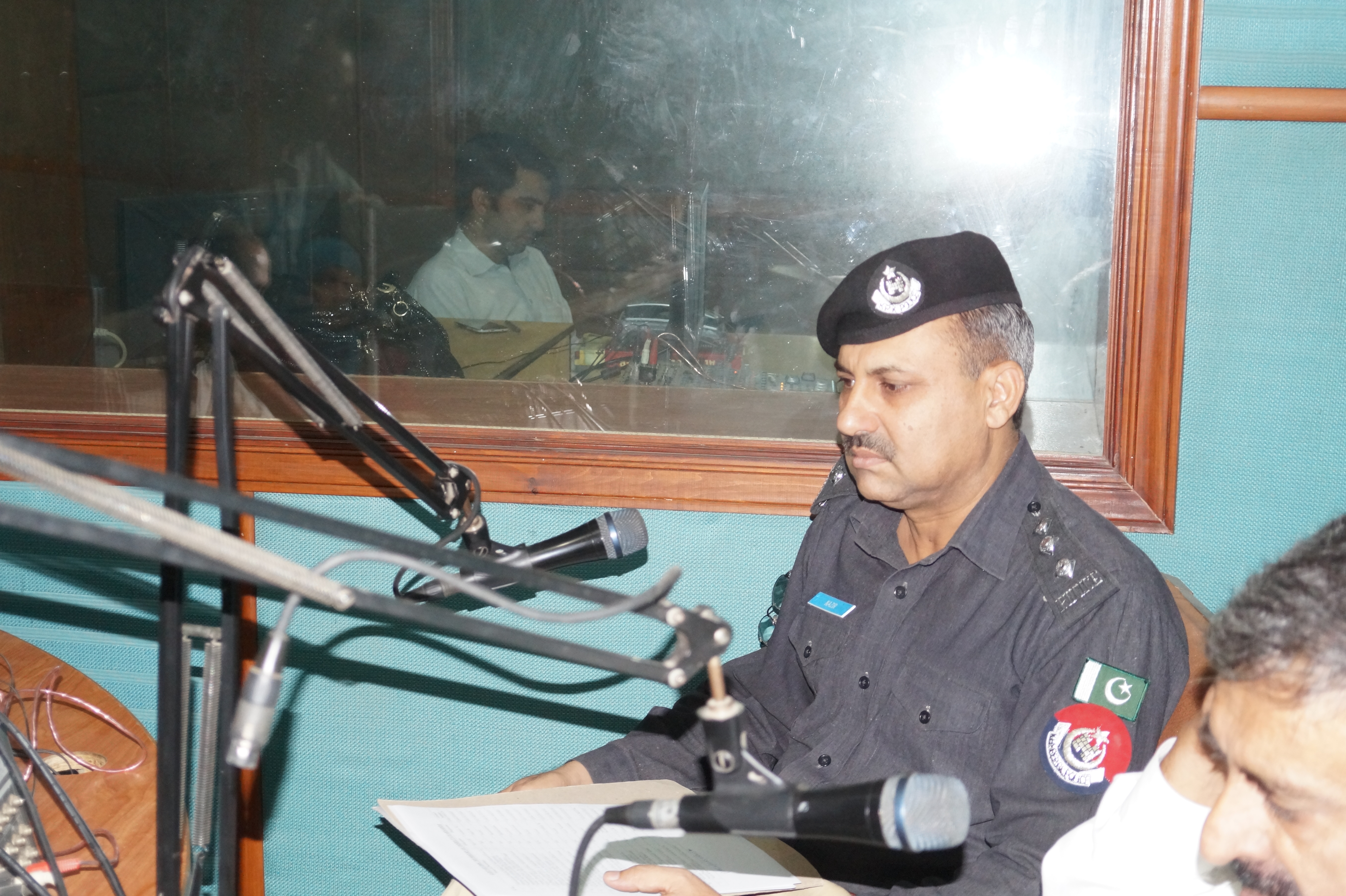
Mr. Nazeer Khan, Deputy Superintendent Police (DSP) City, Charsadda, said: “We have 21 members in DRC Charsadda, out of these 3 members bench is present every day at DRC office for progressing the cases. All of them are working on a voluntary basis to provide easy justice to general public. Till now, a whopping 617 cases have been resolved and only 128 are yet to be resolved.”
The other in studio guests for this radio show were Mr. Qazi Shahid Hayat, Deputy Secretary, DRC Charsadda, and Mr. Mian Musawer Khan, DRC Member, Charsadda.
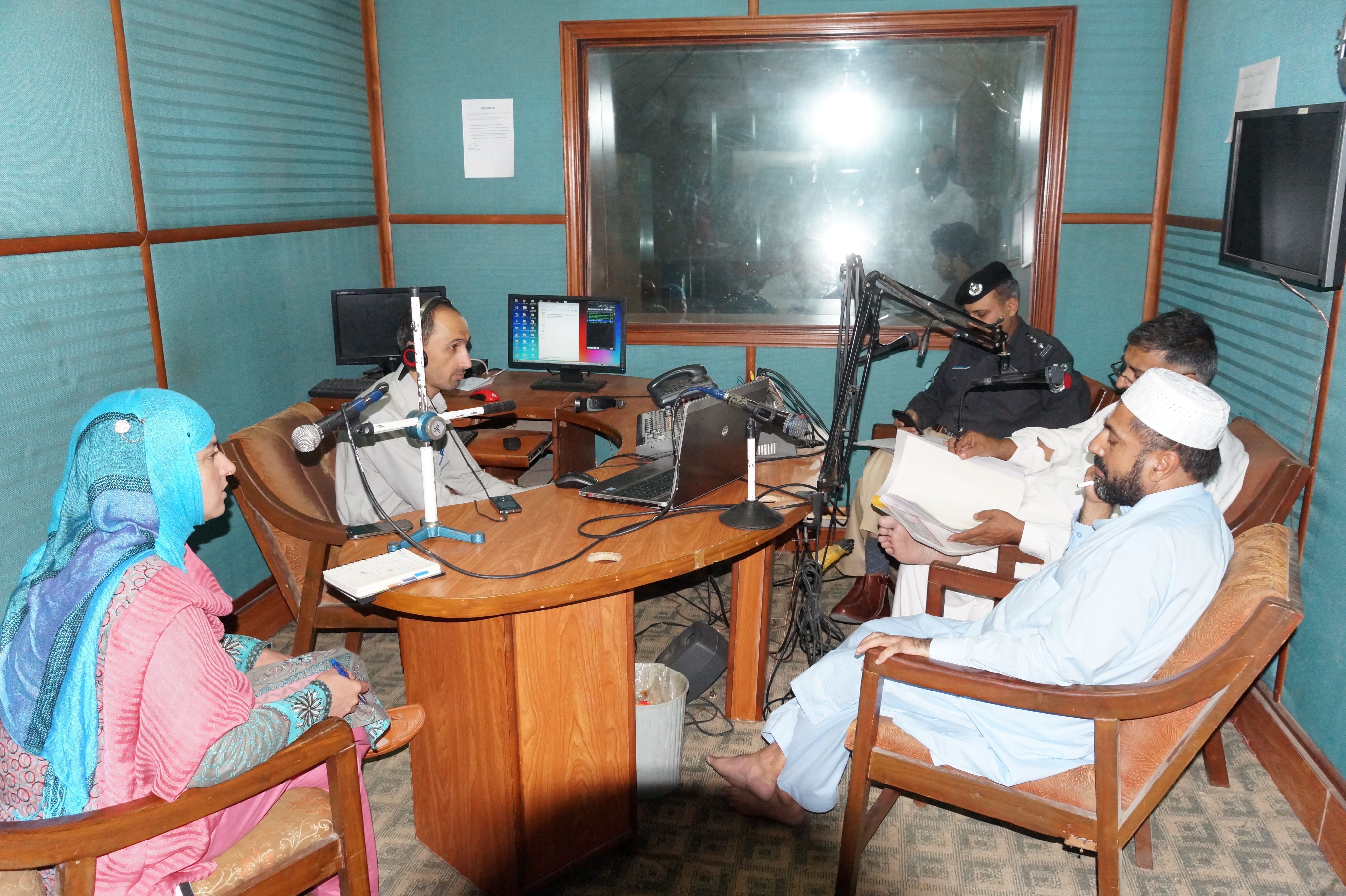
Three field based research stories were also aired as part of these programs; one each from district Mardan, Peshawar, and Charsadda. The reports underlined central themes of the shows and shared views of the community members, lawyers, police officers, business persons, academia members, students, DRC beneficiaries, and intelligentsia. Several live calls from the public were also facilitated.

